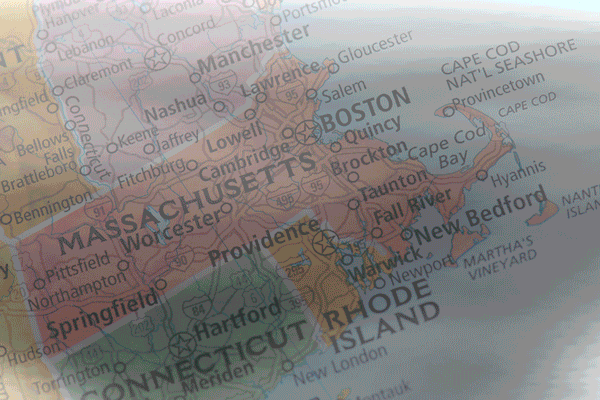3Qs: Why court ruling on emission reductions is 'important and influential'

The Massachusetts' Supreme Judicial Court ruled recently that the commonwealth must set specific limits on greenhouse gas sources and adhere to state mandates that call for significant emission reductions by 2020.
Environmental advocates claimed state administrators were not doing enough in order to reduce greenhouse gases 25 percent below 1990 levels by 2020, as called for in the state's 2008 Global Warming Solutions Act. Massachusetts' highest court agreed.
Northeastern School of Law alumna Jennifer Rushlow, L'07, argued on behalf of the Conservation Law Foundation that brought the suit against the commonwealth.
We asked Lee Breckenridge, professor of law and an environmental law expert, to explain why this is a landmark ruling and what it means for climate change efforts moving forward.
What is your reaction to the Supreme Judicial Court's ruling?
This is an important and influential ruling. The litigation is one of several cases around the country brought by individual young people, in coordination with environmental advocacy groups, asking courts to use their judicial powers to tackle problems of climate change. The court's decision confirms that our state agencies have a mandatory duty, created by the legislature, to roll back the state's greenhouse gas emissions in a systematic way through regulations.
State officials argued that the court should defer to the expertise of environmental administrative agencies, and that the relevant section of the Global Warming Solutions Act expressed aspirational targets, not a requirement for binding limits. It is not unusual for state environmental agencies to experience difficulties and delays, and even to express reluctance when considering pollution control directives from the legislature. Translating a general legislative goal into binding requirements that affect individual polluters and industries is probably the hardest step in implementing any pollution control program.
This is why environmental progress in this country so often depends on the ability of citizen groups to bring suit against their own government, and on the willingness of courts to confirm the environmental duties of government officials. The recent Global Warming Solutions Act case is a classic example of that dynamic. The SJC's decision was an essential step in making sure that the legislative goals will get carried out.
In what ways can Massachusetts do better and do you think it will meet the 2020 deadline?
The Massachusetts Department of Environmental Protection has pledged to carry out the requirements of the statute by setting binding limits for greenhouse gas emissions through regulations. The Massachusetts attorney general has endorsed this important work.
Because of these commitments, I am very hopeful that Massachusetts will get on track to achieve the statutory goals. But this will require a lot of hard work by environmental staff and a continued governmental willingness to make some hard regulatory choices. The legislature and the governor will need to make sure that the Department of Environmental Protection has the resources, staff, and support that it needs to accomplish these goals.
How has environmental law changed as efforts grow to reduce the impact of global warming and climate change?
Perhaps the most conspicuous change—and at the same time, one of the most difficult challenges—has been the crucial effort to coordinate energy law, utilities regulation, land use zoning, transportation planning, and environmental protection.
These are areas that have been separately regulated through different statutes, agencies, and levels of government. Dealing with climate change requires bringing all of these actors together in making decisions that range from siting new power plants to changing the construction standards for new houses.
Provided by Northeastern University


















